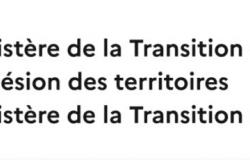Spain’s Supreme Court has refused to grant amnesty to pro-independence leader Carles Puigdemont, who has been in exile since Catalonia’s failed secession attempt in 2017. The country’s highest court has upheld the arrest warrant against him.
Judge Pablo Llarena “gave today (Monday) a judgment in which he declares the amnesty not applicable to the offense of embezzlement in the case targeting the former president of the Catalan Generalitat Carles Puigdemont”, indicated the court in his decision, made public on Monday, specifying that the arrest warrant against him therefore remained in force.
This decision may be appealed within three days from notification to the parties, the document specifies. On May 30, the Spanish parliament adopted an amnesty law for Catalan separatists, the price that socialist Prime Minister Pedro Sánchez had to pay to be returned to power in November thanks to the support of the two Catalan separatist parties, which demanded this measure in return. The law was promulgated on June 11.
More than 400 people prosecuted
The aim of the legislators was that the courts would immediately begin to cancel the arrest warrants targeting the separatists who had fled abroad and that these cancellations would remain valid pending the examination of the appeals filed against the law, a process which could take months or even years.
But with more than 400 people facing prosecution or conviction for crimes related to Catalonia’s 2017 independence bid or events leading up to or following it, the task is daunting for the courts, which must decide on a case-by-case basis.
This law was intended to allow the return of the independentists still in exile, first and foremost Carles Puigdemont, president of the Catalan regional government during the events of 2017, who has since lived in exile in Belgium to escape legal proceedings.
Indicted for crimes of embezzlement, disobedience and terrorism, Mr. Puigdemont, who has been the subject of an arrest warrant since the events of 2017, hoped to be able to return quickly to Spain after the promulgation of the law.
“Desire to obtain personal benefit”
Judge Llarena considered that the amnesty law did indeed apply to the offense of disobedience, but that on the other hand, “the behaviors” accused of Mr. Puigdemont and two other separatists “fully correspond to the two exceptions provided for in the law ” with regard to the offense of embezzlement.
Concretely, the magistrate concluded that there was a desire on the part of Mr. Puigdemont to obtain a personal benefit, as well as an impact on the financial interests of the European Union, which makes the amnesty inapplicable to their eyes.
Therefore, the arrest warrant “is maintained only for the offense of embezzlement, not for that of disobedience,” according to the document. The offense of terrorism with which Mr. Puigdemont is also accused in a separate case is not addressed in this judgment.
ats, afp






